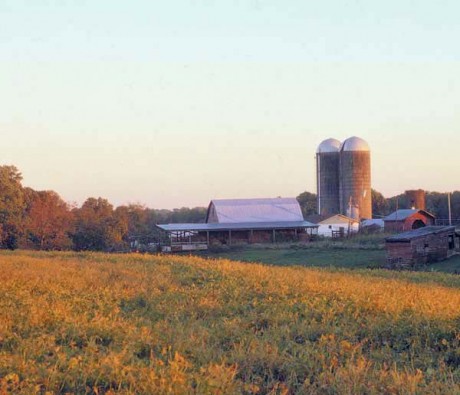USDA assists 45 North Carolina farm projects
The U.S. Department of Agriculture this summer funded 631 projects nationwide intended to help farms and rural small businesses reduce energy consumption and turn to renewable energy sources. Of those, 45 were in North Carolina.
Loans and grants of about $21 million came from the USDA's Rural Energy for America Program (REAP), which was authorized by the 2008 Farm Bill.
"As part of the Obama administration's 'all-of-the-above' energy strategy, USDA continues to work with America's farmers, ranchers and rural businesses to help them save energy and improve their bottom line," said USDA Sec. Tom Vilsack in August.
Under the terms of REAP, up to 25 percent of an eligible energy production or conservation project can be funded through a grant, and additional support can be provided in the form of a loan. Since the start of the Obama administration, REAP has helped fund nearly 7,000 renewable energy and energy efficiency projects nationwide.
Some examples of North Carolina projects are:
- The Tate Family Farm in Guilford County will use a $7,403 grant to install an energy-efficient geothermal system.
- Yarbro Farms in Cleveland County was awarded a $15,624 grant to make lighting, heating and insulation improvements to four poultry houses.
- Butler Farms in Harnett County was selected to receive a $16,250 grant to upgrade an anaerobic digester system to produce electricity from the farm's waste stream.
Other North Carolina projects involved installing photovoltaic solar electric systems, new irrigation systems, improved lighting, wood pellet furnaces, solar water heating, improved tobacco curing systems, and energy-efficient poultry houses.
Agricultural producers who gain 50 percent or more of their gross income from agricultural operations are eligible for the REAP program. Small businesses that are located in a rural area can also apply. Eligible feasibility studies for renewable energy systems include projects that will produce energy from wind, solar, biomass, geothermal, hydro power and hydrogen-based sources. The energy to be produced includes heat, electricity or fuel. Systems must be located in a rural area, must be technically feasible, and must be owned by the applicant.
For more information on REAP, contact the USDA office in Raleigh at (919) 873-2000 or visit www.rurdev.usda.gov/NCContacts.html.
-
Share this story:
{ampz:Custom share for module}
